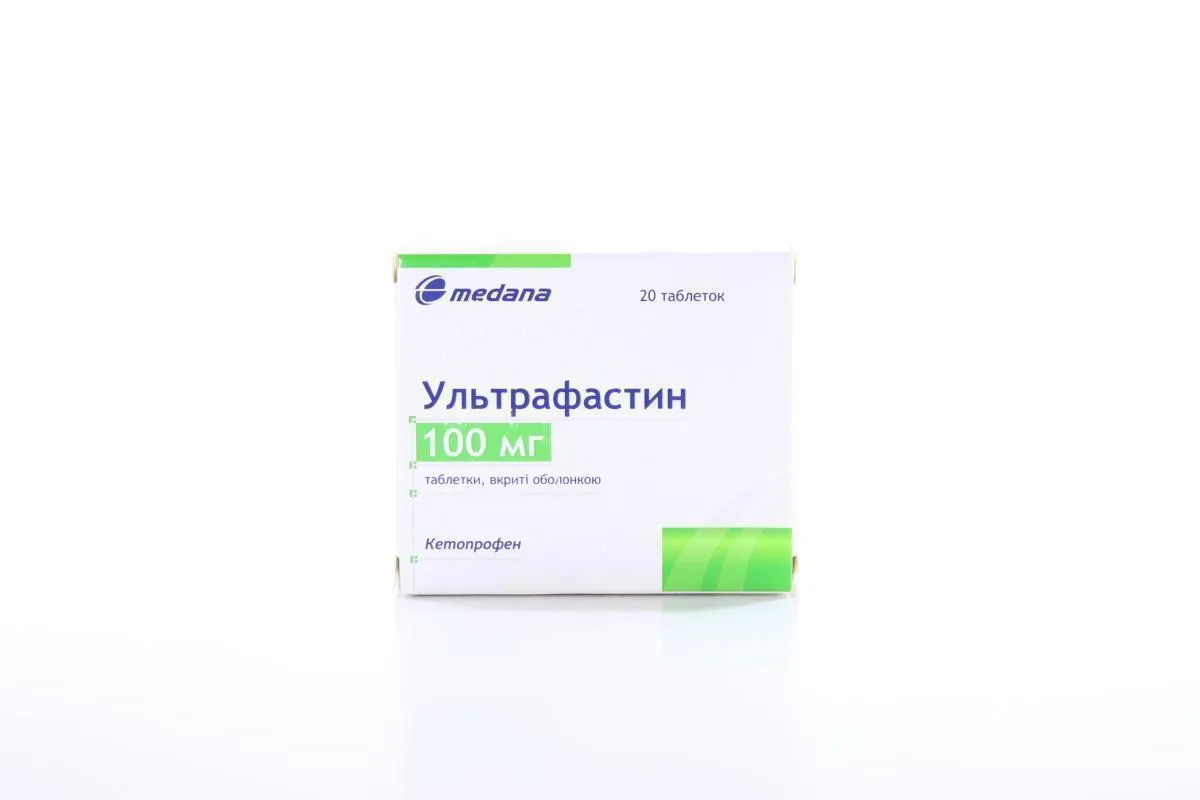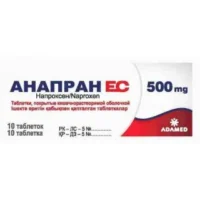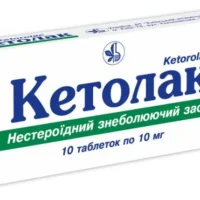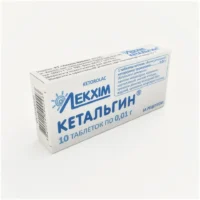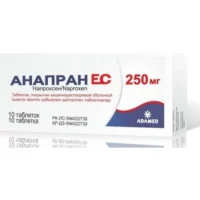Description
Ultrafastin (Ketoprofen) Coated Tablets 100 mg. №20
Ingredients:
Each coated tablet contains 100 mg of ketoprofen as the active ingredient.
Dosage:
The recommended dosage is one tablet taken orally every 8 hours as needed for pain relief.
Indications:
Ultrafastin coated tablets are indicated for the relief of mild to moderate pain, inflammation, and swelling associated with conditions such as arthritis, menstrual cramps, and musculoskeletal injuries.
Contraindications:
Do not use Ultrafastin tablets if you have a history of allergic reactions to ketoprofen or other NSAIDs, or if you have a history of gastrointestinal bleeding or ulcers.
Directions:
Swallow the tablet whole with a full glass of water. Do not crush, chew, or break the tablet.
Scientific Evidence:
Ketoprofen, the active ingredient in Ultrafastin tablets, is a nonsteroidal anti-inflammatory drug (NSAID) with analgesic, anti-inflammatory, and antipyretic properties. Studies have shown that ketoprofen effectively reduces pain and inflammation by inhibiting the enzyme cyclooxygenase, thereby decreasing the production of prostaglandins that are involved in the inflammatory process.
Research published in the Journal of Clinical Pharmacology has demonstrated the efficacy of ketoprofen in providing rapid and sustained pain relief in patients with osteoarthritis and other painful conditions. The coated tablet formulation of Ultrafastin ensures quick absorption and onset of action, making it a preferred choice for acute pain management.
Additional Information:
- Storage: Store Ultrafastin tablets at room temperature away from moisture and heat.
- Side Effects: Common side effects may include stomach upset, nausea, and headache. Seek medical attention if you experience signs of an allergic reaction or severe gastrointestinal effects.
- Precautions: Avoid alcohol consumption while taking Ultrafastin tablets, as it may increase the risk of stomach bleeding. Consult your healthcare provider before using this medication if you have a history of heart disease, high blood pressure, or kidney problems.

